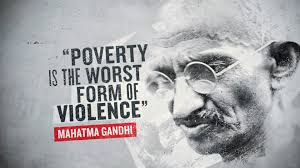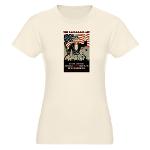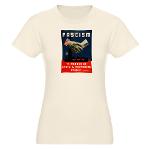Upon reading the article, “Poverty is Violence,” by Russel Madden, I engaged in the following debate with the author about his work…

“Poverty is the worst form of violence’ Mahatma Gandhi
Rayn: I came across your article, “Poverty and Violence,” online in an attempt to find the original author of the quote “Povery is Violence” (it appears to be Ghandi, but I’m still in the process of researching). Anyway, after I had finished reading, I was compelled to write to you. I needed to tell you this: there is absolutely no merit whatsoever in equating the “violence” described in the saying “poverty is violence” with petty crime, or the phrase “poverty is theft.”
This paradoxical saying is simply meant to convey a few simple ideas. Living in hunger is violent because it directly results in physical discomfort, pain and deterioration, and in the worse-case scenarios, dehydration, malnutrition and death; living in homelessness is violent because it exposes you to the harshness of the elements, including frosty winter and snowstorms, rain and thunderstorms, and scorching summer heat. These conditions are known to cause severe physical discomfort, and in the worse-case scenarios, hypothermia, cold and pneumonia, and dehydration. Do you see that pattern that is forming? You can claim that all of these things could be from bad luck, laziness or stupidity, but this meritless generalization, which starts as a possibility, becomes your reason of choice as to why people are trapped in poverty. Also, you define poverty as just at or below the level needed to survive (most definitions actually point to the latter), but then, as if you are writing a whole new article, you later redefine poverty into a much larger group of people: those who have less than the people that have more. This obviously serves to bring home your point that people in poverty are actually just jealous of those with more. However, if we had maintained your first definition, then the “more” that we would be referring to would actually be “food” and “shelter,” not the luxury and comfort items that come to mind when you describe a simple “less vs. more” version of poverty.







